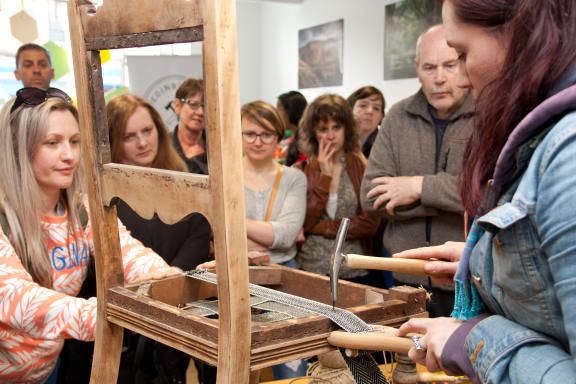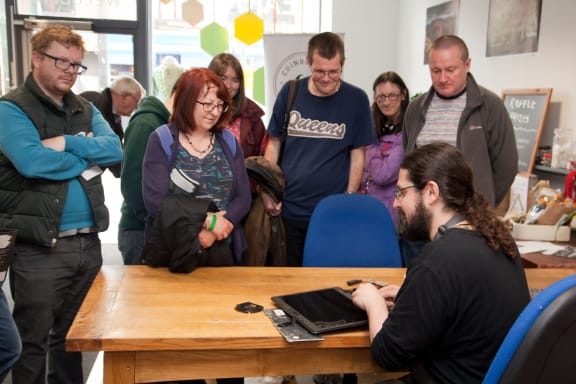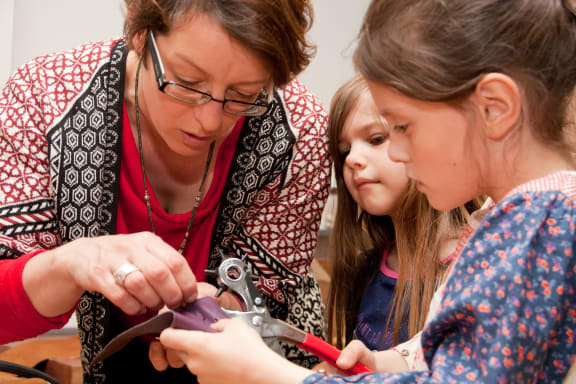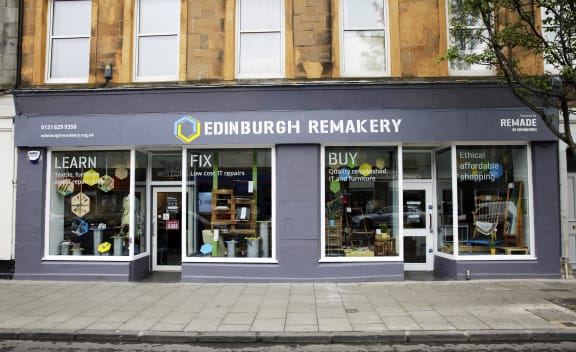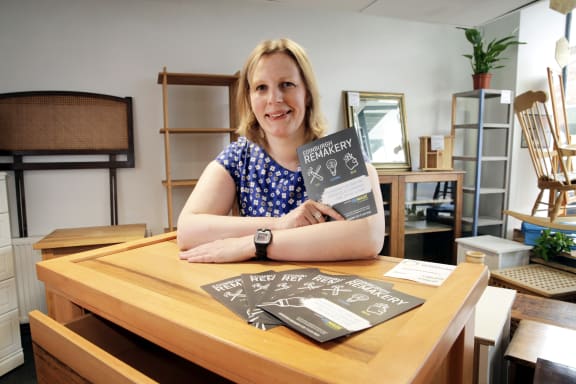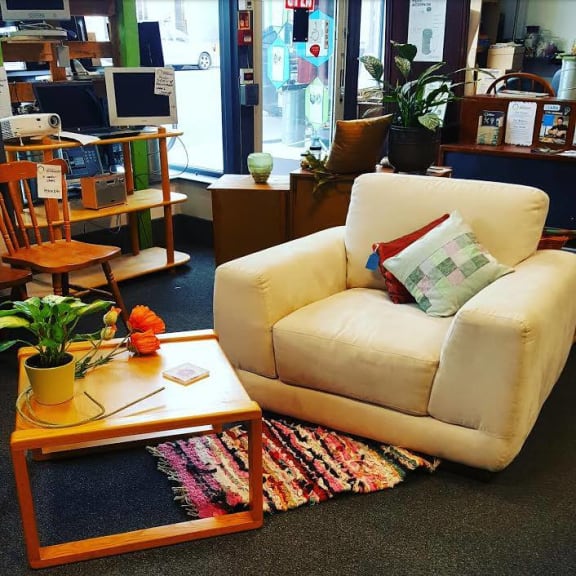'Learn, Fix, Buy' reads a sign in the window of the Edinburgh Remakery.
Here, and at a sister site in South London, people learn how to mend their own furniture, textiles, phones and computers.
Sophie Unwin is the founder of the Remakery and the 2016 UK Entrepreneur of the Year.
She says the project has a double mission of teaching people to fix things and at the same time campaigning for things to be built to last.
"We're not about blaming people for not reusing more, not recycling more, we're about making it easier for people."
The project began when Unwin returned to the UK after living in a Nepalese village and experienced reverse culture shock.
"I thought 'Hang on, how come I've gone through the whole education system in the UK and done well in an academic way, but I actually don't know how to do the most basic carpentry or anything that if I was marooned in a difficult situation would actually get me out of trouble?
At the moment, about 1,000 people a year learn new skills – ranging from beginner's level to very advanced – at the Edinburgh centre.
The volunteers enjoy using their hands, experimenting and getting away from screen time, she says.
"It's a really good antidote to getting lost in social media."
Those who are depressed or socially isolated find it particularly rewarding.
"Being part of something bigger than themselves, something quite practical, has really helped them turn a corner and feel more positive about life."
Unwin says that while some companies such as the outdoor clothing giant Patagonia are building repair into their business model, typically the manufacturing industry works on the principle that if they create something that isn't going to last long people will simply replace it.
This philosophy of 'planned obsolescence' extends to retail shops, as well, says Unwin.
"We often get the anecdote that people have a laptop that's not working and they take it to a shop and the shop says 'That's really difficult. That's going to be £130 and £50 just to look at it. On the other hand, you could upgrade..."
At the Remakery, they turn that approach on its head.
"We say 'We'll have a look at it for free and if we can fix it, we'll charge you. But we won't just fix it for you, we'll fix it with you. We'll show you what we're doing and we'll try and demystify the process."
Often, it's something simple like dust or outdated virus software making a laptop run slow, she says, and the fixes required "aren't rocket science".
The Remakery is able to fix 90% of the laptops that come in and extend their life by an average of three years.
In Scotland, ten times more money goes into the incineration industry than into waste prevention, says Unwin.
"I think that figure should really get policy-makers and politicians sitting up because that's a saving they could be making and creating a lot more benefits in the process.
"I'm passionate about seeing green economy flourish. I think it's really important we make that happen."
The Remakery has attracted an overwhelming amount of interest recently, including an enquiry from the proposed Mawhera Innovation Hub in Greymouth.
They are currently working on a template to be trialled in two places soon. After testing, the business model will be shared.
"For us, it's taken five, six years to get to this point. I'd love to have a model which maybe took another group two years to do because they could avoid some of the mistakes we've made as we've learnt along the way."
